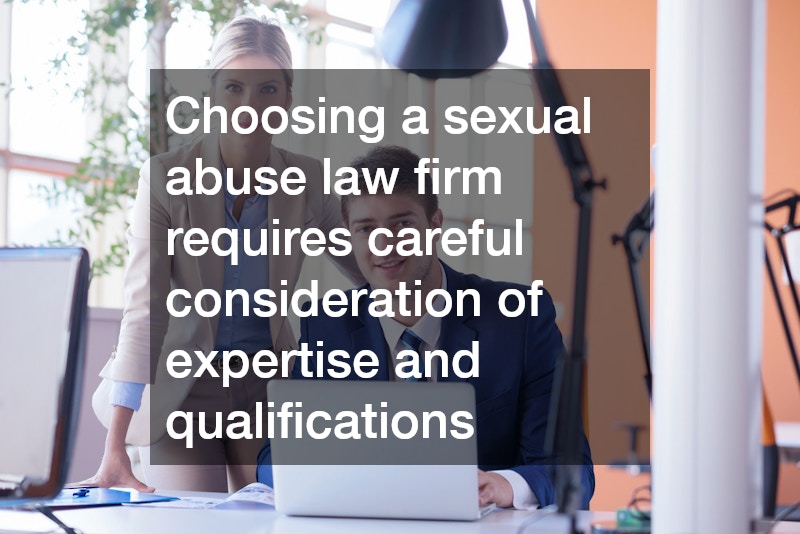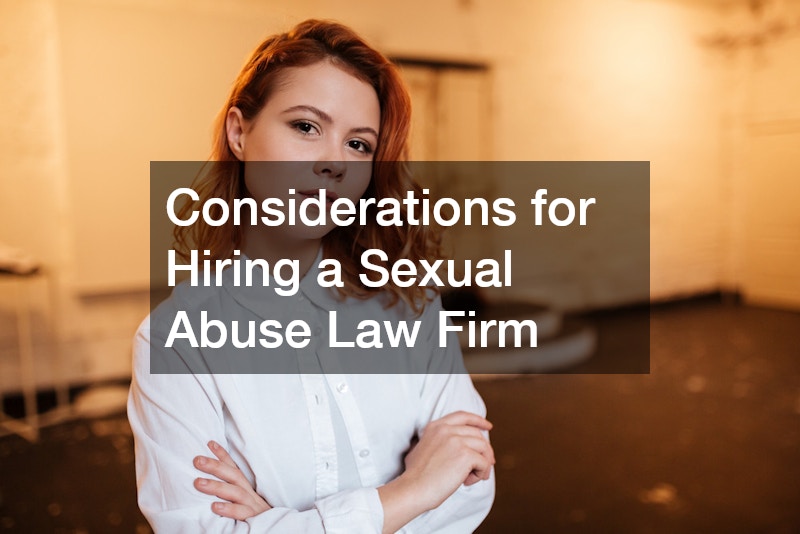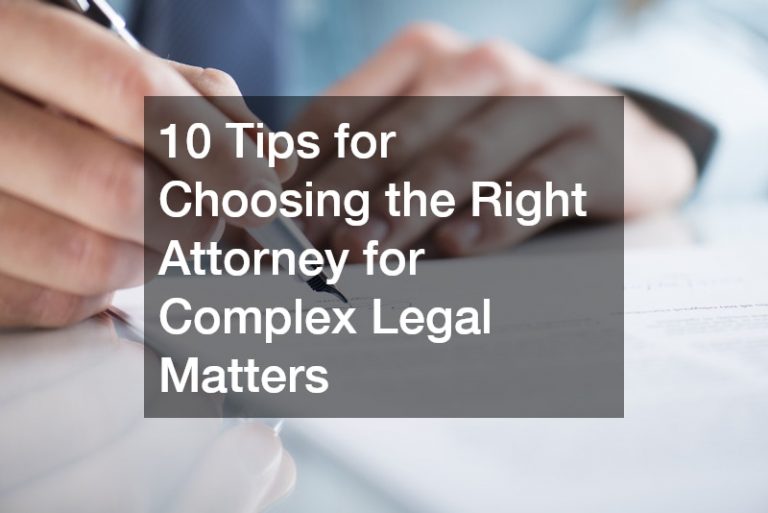The process of hiring a sexual abuse law firm can be intimidating and overwhelming, especially for survivors seeking justice. This article aims to provide clarity by exploring the essential considerations and addressing common questions involved in choosing the right legal representation. Survivors need to feel empowered and informed as they navigate this crucial decision.
How to Determine if a Law Firm Specializes in Sexual Abuse Cases?
Researching Law Firm Expertise
Verifying a firm’s specialization in sexual abuse cases is imperative, and online research is an effective starting point. It is advisable to scrutinize reviews and ratings which offer insights into the firm’s reputation and area of focus.
Pay close attention to legal directories and professional associations that can validate the firm’s expertise in handling such sensitive cases.
Searching for legal professionals on platforms like Avvo or Martindale-Hubbell can also provide detailed profiles, including case focus areas and peer reviews. Equally important is the firm’s reputation within the community and feedback from previous clients, which can be telling of their approach and effectiveness. Furthermore, consider whether the firm has been involved in landmark cases, demonstrating its capability and dedication.
Online forums and survivor support groups can also offer personal accounts and recommendations. Engaging directly with these communities may offer practical advice and firsthand experiences. Connecting with others who have sought legal counsel can provide a realistic outlook on what to expect throughout the legal process.
Examining Track Record and Case Outcomes
Assessing a law firm’s track record is integral to understanding its competence. Reviewing successful case outcomes offers tangible evidence of the firm’s ability to secure justice for its clients. Evaluate client testimonials that convey satisfaction with the firm’s services and results obtained.
Consider how the firm handles settlements versus trials, as this can indicate their negotiation skills and preparedness for court. A mix of both settlements and trial victories can reflect a balanced approach to achieving favorable outcomes. Look for consistency in winning cases, which can be indicative of expertise and specialized knowledge in sexual abuse law.
It is also beneficial to analyze cases similar to your own, which can foreshadow potential strategies and prospects of success. This level of due diligence can help build trust in the firm’s capabilities. Ultimately, a proven track record inspires confidence in the legal strategy and commitment offered by the firm.
Consultation and Initial Impressions
Initial consultations provide an opportunity to assess a firm’s approach and empathy towards its clients. During this stage, observe the lawyer’s interpersonal skills and willingness to listen. A lawyer who displays genuine interest and patience is more likely to prioritize your needs throughout the case.
Ask clear and direct questions about the firm’s experience with sexual abuse cases to gauge their knowledge and specialization. A qualified attorney should provide detailed answers and a clear outline of potential strategies. Take note of their openness to explain legal terminologies and processes in understandable terms.
Trust your instincts regarding the comfort and confidence they create during your interaction. Such insights into the attorney-client relationship are crucial as cases often navigate sensitive and personal matters. Ensuring initial positive impressions can lead to a more supportive and understanding legal partnership.
What Qualifications Should an Attorney Possess?
Understanding Necessary Credentials and Experience
Attorneys handling sexual abuse cases should possess specific academic and professional qualifications. A law degree from an accredited institution and a license to practice law are fundamental. Additionally, specialized experience in personal injury law, particularly related to sexual abuse, is essential to provide adept representation.
Look for attorneys who have completed continuing legal education (CLE) courses focused on sexual abuse litigation. Such courses enhance their proficiency in handling complex emotional and legal issues surrounding these cases. Furthermore, membership in professional organizations such as the National Crime Victim Bar Association signifies a commitment to supporting survivors.
Investigate whether the attorney has published any articles or conducted workshops on topics relevant to sexual abuse law. This indicates both recognition among peers and depth of expertise. An attorney with a well-documented history in advocacy can provide invaluable guidance and representation.
Assessing Professional Ethics and Commitment
A lawyer’s ethical standing is critical and can be evaluated through references and state bar associations. Seek out any disciplinary actions that may have been filed to ensure integrity is upheld. An attorney’s commitment is evidenced by their passion and perseverance to advocate for survivors.
Gauge an attorney’s dedication by inquiring about their involvement in community advocacy or pro bono work related to sexual abuse. These commitments demonstrate a vested interest in creating positive societal impacts. Additionally, involvement in such initiatives showcases empathy and a deeper understanding of survivor experiences.
Observing an attorney’s attitude towards ethical standards and advocacy can help anticipate the level of dedication they will extend to your case. A committed attorney not only fights for legal victories but also supports emotional well-being. Choosing a lawyer who upholds high ethical standards can ensure that a case is pursued with integrity and empathy.
Choosing a sexual abuse law firm requires careful consideration of expertise, qualifications, and the ability to provide compassionate support. By addressing common queries, this guide aims to empower survivors to make informed decisions in their pursuit of justice. Ultimately, the right legal representation can play a crucial role in achieving closure and healing for survivors.
.








